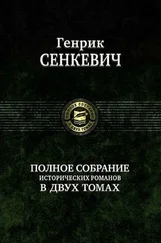Генрик Сенкевич - Hania
Здесь есть возможность читать онлайн «Генрик Сенкевич - Hania» — ознакомительный отрывок электронной книги совершенно бесплатно, а после прочтения отрывка купить полную версию. В некоторых случаях можно слушать аудио, скачать через торрент в формате fb2 и присутствует краткое содержание. Жанр: foreign_antique, foreign_prose, на английском языке. Описание произведения, (предисловие) а так же отзывы посетителей доступны на портале библиотеки ЛибКат.
- Название:Hania
- Автор:
- Жанр:
- Год:неизвестен
- ISBN:нет данных
- Рейтинг книги:5 / 5. Голосов: 1
-
Избранное:Добавить в избранное
- Отзывы:
-
Ваша оценка:
- 100
- 1
- 2
- 3
- 4
- 5
Hania: краткое содержание, описание и аннотация
Предлагаем к чтению аннотацию, описание, краткое содержание или предисловие (зависит от того, что написал сам автор книги «Hania»). Если вы не нашли необходимую информацию о книге — напишите в комментариях, мы постараемся отыскать её.
Hania — читать онлайн ознакомительный отрывок
Ниже представлен текст книги, разбитый по страницам. Система сохранения места последней прочитанной страницы, позволяет с удобством читать онлайн бесплатно книгу «Hania», без необходимости каждый раз заново искать на чём Вы остановились. Поставьте закладку, и сможете в любой момент перейти на страницу, на которой закончили чтение.
Интервал:
Закладка:
After that no one gave unconditional commands to Mikolai, but as often as he was sent anywhere we told him what to do in case he did not find the person at home.
Some months later Mikolai went to a fair at a neighboring town to buy horses, for he knew horses perfectly. In the evening the manager came to say that Mikolai had brought the horses, but had come back beaten and was ashamed to appear. My father went immediately to Mikolai, —
"What is the matter with thee, Mikolai?"
"I had a fight!" he blurted out briefly.
"Be ashamed, old man. Thou wilt pick quarrels in a market? Thou hast no sense. Old, but a fool! Dost thou know that I would discharge another man for such a trick? Be ashamed. It must be that thou wert drunk. So thou art spoiling my people, instead of giving an example."
My father was really angry, and when he was angry he did not trifle. But this was the wonder, that Mikolai, who on such occasions did not forget the tongue in his mouth, was as silent as a log this time. Evidently the old man had grown stubborn. Others asked him in vain how it had happened and what was the question. He merely snorted at one, and said not a word to the other.
But they had annoyed him in earnest. Next morning he was so sick that we had to send for the doctor. The doctor was the first man to explain the affair. A week before my father had quarrelled with his overseer; the man ran away on the following day. He betook himself to a certain Pan Zoll, a German, a great enemy of my father, and took service. At the fair were Pan Zoll, our former overseer, and Pan Zoll's servants, who had driven fat cattle to the fair to be sold.
Pan Zoll saw Mikolai first; he approached his wagon and fell to abusing my father. Mikolai called him a traitor, and when Pan Zoll uttered new outrages against my father, Mikolai retorted with the handle of his whip. Then the overseer and Zoll's servants rushed at Mikolai and beat him till he was bloody.
When my father heard this story tears came to his eyes. He could not forgive himself for having scolded Mikolai, who had been silent about the whole affair purposely.
When Mikolai recovered my father went to reproach him. The old man at first would not confess anything, and grumbled according to his habit; but afterward he grew tender, and he and my father cried like two beavers. Next my father challenged Zoll for the affair, and a duel was fought which that German remembered for many a day.
But had it not been for the doctor, Mikolai's devotion would have remained unknown. Mikolai had hated that doctor for a long time. The cause was as follows: —
I had a beautiful and youthful aunt, my father's sister, who lived with us. I loved her greatly, for she was as good as she was beautiful, and it did not astonish me that all loved her, and among others the doctor, a man who was young, wise, and exceedingly respected in that whole region. At first Mikolai liked the doctor, said that he was a clever fellow and rode well; but when the doctor began to visit us with evident intentions regarding Aunt Marynia, Mikolai's feelings toward him changed beyond recognition. He began to be polite, but cold to him as to a man utterly strange. Formerly he would scold even him. When on some occasion he had sat too long with us, Mikolai when preparing him for the road grumbled: "What is the good of knocking around in the night? That serves nothing. Has any one ever seen the like!" Now he ceased to scold, and was as silent as if turned to stone. The honest doctor understood soon what it meant, and, though he smiled kindly as before at the old man, still, I think that in his soul it must have annoyed him.
Happily for the young Esculapius Aunt Marynia cherished for him feelings directly opposite those of Mikolai. On a certain evening, when the moon was lighting the hall very nicely, the odor of jasmine came in through the open window. Aunt Marynia was singing at the piano "Io questa notte sogno." Doctor Stanislav approached and asked in a quivering voice, if she thought that he could live without her. Evidently aunt expressed her doubts on this subject; then followed mutual vows, the calling of the moon to witness, and all things of that sort, which are done usually in such cases.
Unfortunately Mikolai came in just that moment to call them to tea. When he saw what was happening, he ran at once to my father, and since my father was not at the house, for he was walking around the buildings of the estate, he went to my mother, who with her usual kindly smile prayed him not to interfere in the matter.
The confused Mikolai was silent, gnawing himself internally during the rest of the evening; but when my father before going to bed went once more to the chancery to write some letters, Mikolai followed him, and stopping at the door began to cough significantly and knock his feet together.
"What does Mikolai wish?" asked my father.
"But that – What do they call it? – I wanted to ask if it is true that our young lady is going to take – a wife – I wanted to say going to take a husband?"
"Yes. What of it?"
"But it cannot be true that the young lady is going to marry that – barber?"
"What barber? Has Mikolai gone mad? – And must he push in his three coppers everywhere?"
"But the young lady, is she not our young lady; is she not the daughter of the lord colonel? The lord colonel would never have permitted this. Is not the young lady worthy of an heir and a lord of lords? But the doctor, with permission, who is he? The young lady will expose herself to the ridicule of people."
"The doctor is a wise man."
"Wise or not wise, is it few doctors that I have seen? They used to go through the camp and circle around in the army staff; but when it came to anything, a battle, for instance, they were not there. Didn't the lord colonel call them 'lancet fellows'? While a man is well the doctor won't touch him, but when he is lying half alive, then the doctor will go at him with his lancet. It is no trick to cut up a man when he cannot defend himself, for he has nothing in his hand. But try to cut him when he is well, and has a gun. Oi yei! A great thing to go over people's bones with a knife! There is no good in that! But the lord colonel would rise out of his grave if he knew of this. What kind of a soldier is a doctor? Or is such a man an heir? This cannot be! The young lady will not marry him. That's not according to command. Who is he to aspire to the young lady?"
Unfortunately for Mikolai the doctor not only aspired to the young lady, but even got her. Half a year later the wedding took place, and the colonel's daughter, covered with floods of her relatives' tears, and tears of the house-servants in general, but of Mikolai in particular, went away to share the fate of the doctor.
Mikolai did not cherish any feeling of offence against her, for he could not, since he loved her so much; but he would not forgive the doctor. He hardly ever mentioned his name, and in general tried not to speak of him. I may say in passing that Aunt Marynia was most happy with Doctor Stanislav.
After a year God gave them a beautiful boy, after another year a girl, and so on in turn, as if it had been written down. Mikolai loved those children as his own; he carried them in his arms, fondled them, kissed them, but that there was a certain vexation in his heart because of the mésalliance of Aunt Marynia I noticed more than once.
We had assembled one Christmas eve, when suddenly the rumble of a carriage was heard on the road. We always looked for a number of relatives, therefore my father said, —
"Let Mikolai look out and see who is coming."
Mikolai went out, and returned soon with delight in his face.
"The young lady is coming!" cried he, from a distance.
"Who is that?" inquired my father, though he knew whom Mikolai meant.
Читать дальшеИнтервал:
Закладка:
Похожие книги на «Hania»
Представляем Вашему вниманию похожие книги на «Hania» списком для выбора. Мы отобрали схожую по названию и смыслу литературу в надежде предоставить читателям больше вариантов отыскать новые, интересные, ещё непрочитанные произведения.
Обсуждение, отзывы о книге «Hania» и просто собственные мнения читателей. Оставьте ваши комментарии, напишите, что Вы думаете о произведении, его смысле или главных героях. Укажите что конкретно понравилось, а что нет, и почему Вы так считаете.









